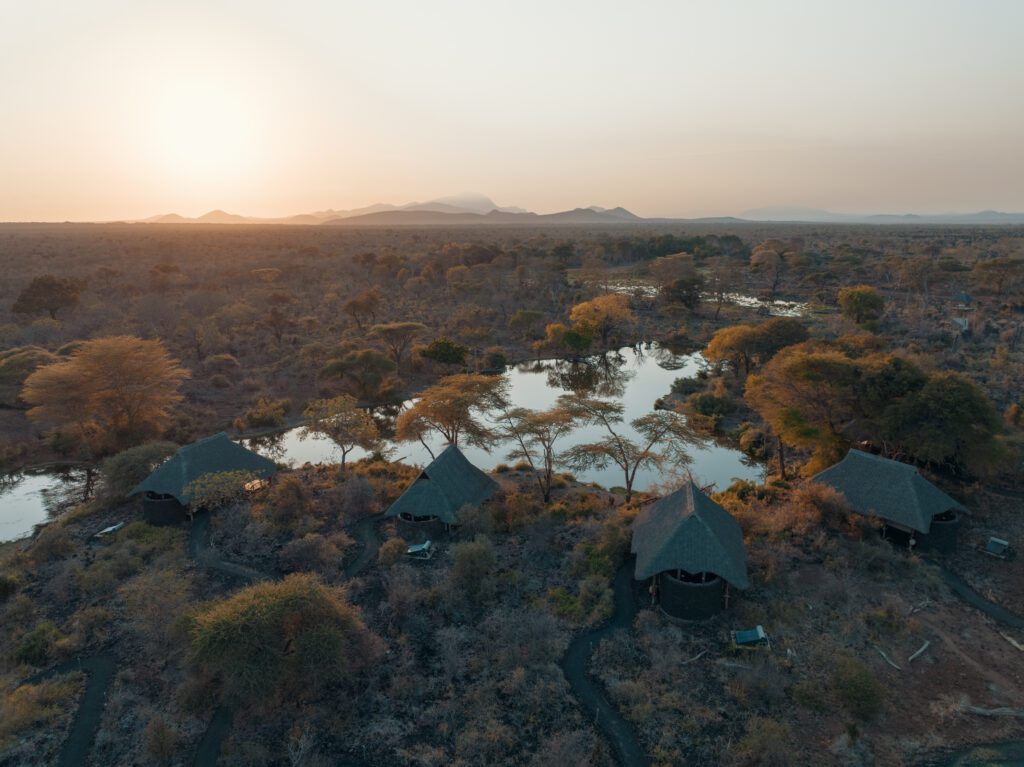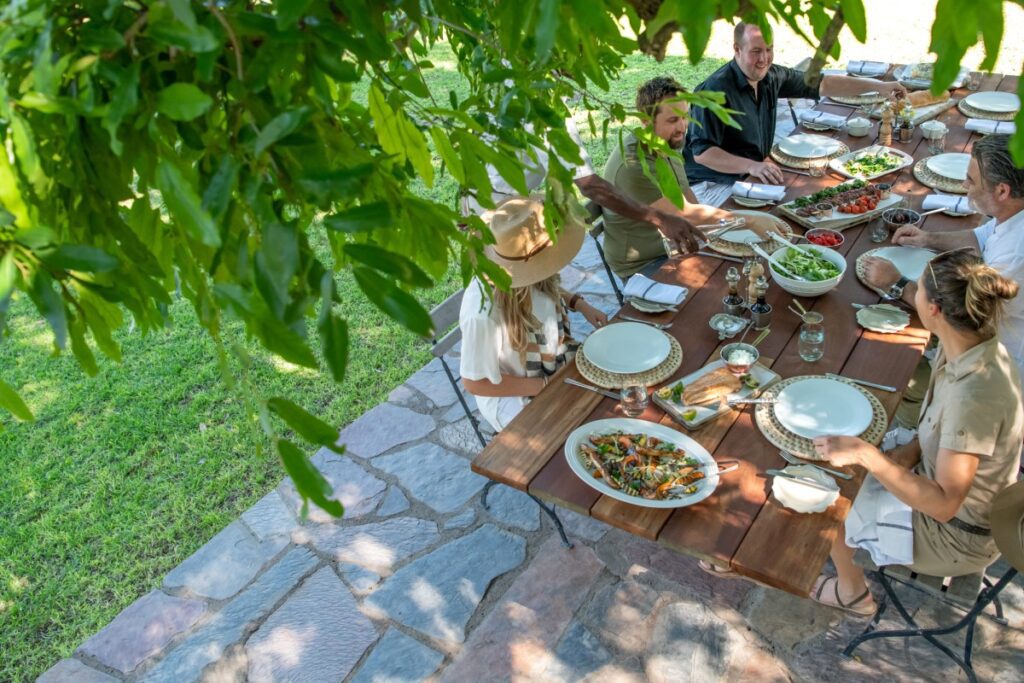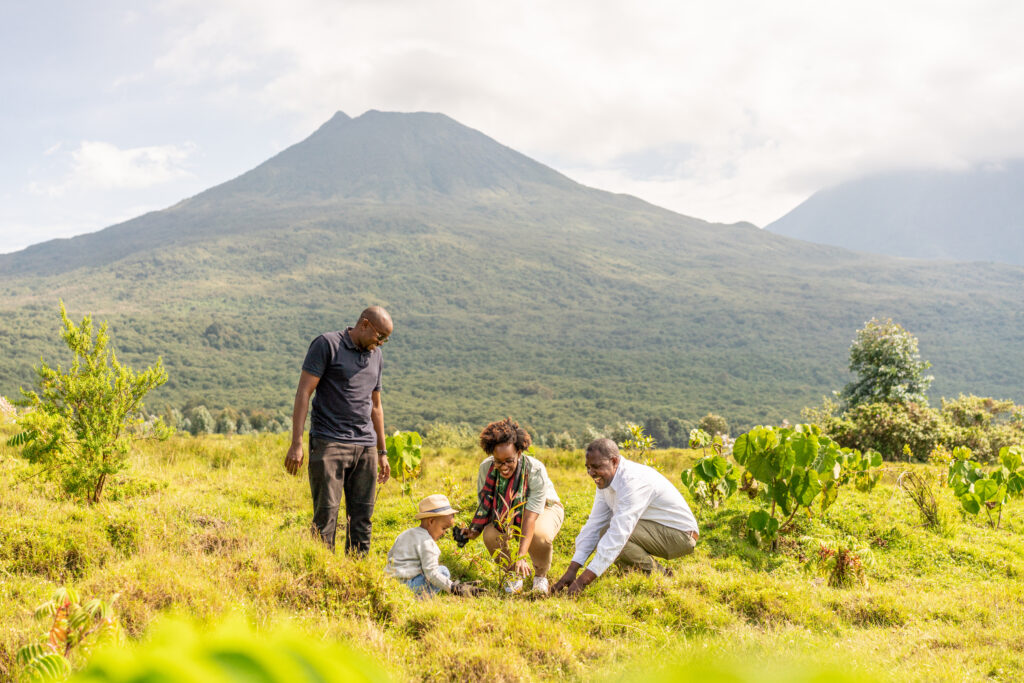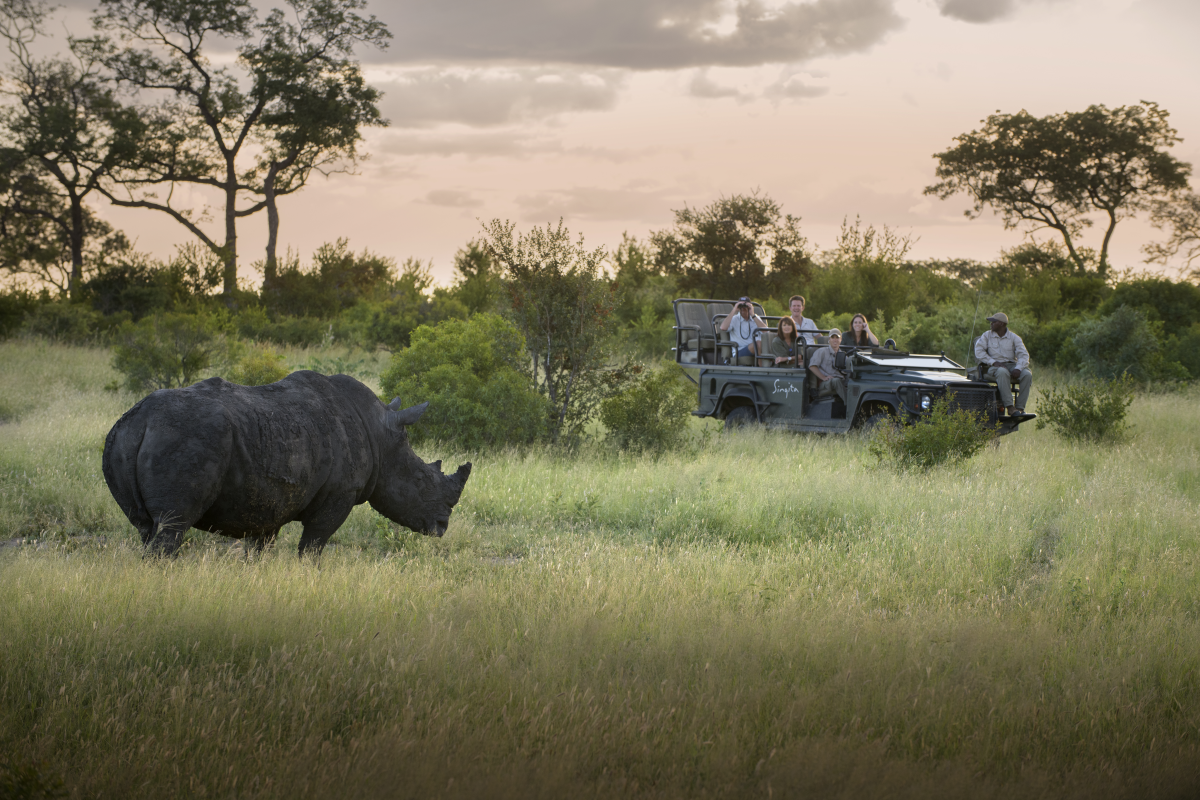Skift Take
Many safari lovers are looking for immersive experiences, and not just chasing the Big 5 animal species.
African countries are seeing a surge in international travel, fueled by luxury safari experiences with repeat visitors. Returning travelers remain excited by the continent’s iconic wildlife. However, they want to mix up their experiences beyond spotting game from the back of a Jeep.
We spoke to a half-dozen operators of multi-day safari tours and safari hospitality brands to find out the latest booking data and guest preferences. We came away with seven emerging trends we expect will shape safari tourism in the year ahead.
1. Increased Spending on Safari Trips
Adventure-booking platform TourRadar said Africa has emerged as a major outbound market for North American and European travelers.
Its 2023 search and booking data showed that trips valued over $3,800 (€3,500) had doubled since 2019, fueled by demand for premium safari experiences. The average trip spend for safaris specifically has increased by 65%, said Aziaz Sheikh, TourRadar Head of Community.
Travelers going on organized adventures to Africa in 2023 had increased by 33%, compared to 2019, with a “huge appetite for safaris.” Travel to Tanzania was up 48% and Kenya was up 22% overall.
“The one thing that is unique for the U.S. as a source market [for safaris] is that Tanzania is the biggest selling destination (32%), and then South Africa (20%), with Kenya a distant third (13%),” said Sheikh. “This differs from the rest of the world, which generally sees a balance between the 3 destinations.”
Philip Rendel, founder of Where It All Began, a Southern Africa travel planning company, said that 2024 bookings have so far seen a more than a 60% increase in spending. Rendel said the average spend for 2023 was around $8,201 (150,000 rand) for two people. For 2024, the company sees $13,668,34 (250,000 rand) per average trip.
Tour operator Backroads said its bookings for active African safaris for 2024 are nearly double this year’s, when the average spend was $5,077.
“When we recently asked our travelers what destination is on their travel bucket list, African safaris were frequently mentioned,” said Tom Hale, founder and CEO of Backroads.
Travel bookings headed into 2024 also showed safari travelers are looking to stay for longer stretches — by an average of at least two days or more.
Rendel noted that average trip durations have extended from 14 to 20 days in the past year: Where It All Began’s forward bookings are showing an increase in repeat customers from 25% in 2023 to 75%.
Andre Van Kets, co-founder of tour planning company Discover Africa, said it has had a wave of pent-up pandemic demand for the past year-and-a-half, with an average spend of $9,600 in 2023. Discover Africa has also noted a shift from 10-day to 14-day trips over the past year.
While the revenge spending might be petering out heading into 2024, according to Van Kets, he expects seasonal booking trends between January and mid-March to maintain pre-pandemic levels as a new wave of repeat customers emerges.
2. Returning for More Immersive Experiences
These return visitors are looking for more involved experiences, with safari itineraries across multiple countries instead of single-country trips, according to Discover Africa Head of Product Murielle Mignot-Vegezzi.
With a repeat booking rate of 18%, the company sees multi-day travel combinations like Namibia and Botswana, with visits to Victoria Falls spread across Zambia and Zimbabwe. Incorporating gorilla tracking in East Africa has also become more popular. Mignot-Vegezzi said improved flight connections among African countries, especially Kenya, and flexibility to take longer travel windows added to the trend.
Pairing different experiences with traditional safari itineraries drove travel to less-visited African countries, said Rendel of Where It All Began.
New destinations are grabbing travelers’ attention, in addition to the safari capitals of Kenya and Tanzania. An example is Zambia, said Rendel, spurred on by activities like canoeing on the Zambezi River.
Similarly, Toronto-headquartered luxury tour operator Kensington Tours sees “revisiting Africa for another safari adventure” as a growing trend. Overall the company has seen 30% repeat visitors in 2023, and a 9% increase in trip spending.
“Many first-timers, after just a few game drives, become enamored with the safari experience they’ve long dreamed of,” said Andrew Drummond, manager of product at Kensington Tours.
“On subsequent visits, we provide them with deeper, more immersive experiences to extend beyond the usual ‘Big 5’ (rhino, elephant, lion, buffalo, leopard) safaris, offering explorations on foot, canoe, boat, and even helicopter to give varied perspectives,” said Drummond.
Kensington’s South Africa itineraries have been adapted to include a city stop in Cape Town and a safari component in Kruger National Park. In Cape Town, guests can take a cable car ride up Table Mountain and a mountain bike ride back down. The trip includes excursions to see Cape Point Peninsula penguins and whale watching before heading to a Kruger bushveld stay at Sabi Sands for tracking the “big five” animal species.
A Namibia multi-day tour combines the desert dunes of Sossusvlei, an ancient rock art experience at the UNESCO World Heritage site of Twyfelfontein, with the more traditional tracking of desert-adapted elephants in the Etosha National Park, added Drummond.

3. More Eco-Conscious Travelers
Singita, a luxury safari hospitality brand, is seeing a safari traveler searching for a vastly different experience from 25 to 30 years ago.
Its guests, mainly from North America — with 61% U.S. travelers and 35% returning visitors for 2023 — have redefined their expectation of luxury as today’s safari traveler is more eco-conscious, stated CEO Jo Bailes.
“The modern safari traveler wants to learn about other cultures and connect with nature and people,” Bailes said. “They want philanthropy, experiences that give back and lead to meaningful travel.”
Guests have also shown more interest in “authentic sustainability credentials like solar energy, food waste, plastic usage, water saving, ethical food sourcing, and local employment,” Bailes said
Discover Africa guests also prefer activities that allow them to contribute to conservation efforts, engage in cultural exchanges, and participate more meaningfully beyond typical safari tours, added Mignot-Vegezzi.
This has led to the development of “positive impact” or “impact safaris” that are either community-driven or conservation-driven through curated interactions with scientists, said Mignot-Vegezzi. Some of Discover Africa’s preferred partners for these types of impact safaris include Asilia Africa’s Usangu Expedition Camp in Tanzania and African Bush Camps and Sabi-Sabi in Southern Africa.
4. Multi-Generational Private Group Travel
Discover Africa founder Van Ketz said they’ve seen more inquiries for families traveling together, including grandparents, aunts, and cousins. He added that this multi-gen travel trend drove a shift in accommodation offerings at luxury lodges to cater to larger groups with manor homes, villas, and family camps instead of traditional 2-bedroom stays.
Singita has also seen high demand for family bookings or groups of friends to have “unfiltered time and space to spend time connecting,” said Bailes.
“Singita’s villas and camps are grounded in the spirit of togetherness,” said Bailes. “Luxury has become synonymous with privacy, personalization, and the space to create meaningful experiences that foster connection.”

5. Amenities Become Secondary
Travelers, especially the more affluent, are increasingly prioritizing unique safari experiences over traditional luxury amenities and facilities.
“There’s far less interest in the features of luxury safari lodges like spas, star beds, and the standard of food and wine than there has been in recent years,” Rendel said.
Guests to Singita have also looked to quality over quantity, said Bailes, with the hospitality stay becoming secondary to the experience. Singita has looked to integrate conscious travel elements into every aspect of its guest’s journey, “amplifying what matters most with less opulence and more honesty.”
6. Getting Guests Off the Safari Vehicle
Finch Hattons, a luxury tented camp in West Kenya, said its guests are also looking to get off the safari vehicle to make a deeper connection with the surrounding Tsavo West National Park.
Hiking through the cloud rainforest in the Chyulu Hills, exploring the Shetani Lava Flow, and practicing yoga in the Chyulu bushveld are part of a “healing journey with a Kenyan influence” offered by the luxury camp, said Finch Hattons’ Director Leena Gehlot.
Where it All Began’s Rendel added that while safaris are often associated with quintessential Jeep excursions to explore game reserves and get up close to the wildlife, there’s an increasing desire for safaris with different transport forms.
“Horseback riding and walking safari inquiries have increased,” said Rendel.

7. Local History and Culture Matter
Valuing local guides with deep knowledge of native culture, landscapes, and wildlife is another growing trend, said Where It All Began’s Rendel. In a way, some guides are developing their own personal brands.
“Travelers are showing an increased desire to know exactly who their guides are on safari experiences, especially when it comes to learning what their particular expertise is alongside where they were born and raised,” said Rendel.
“Bookings are increasing for these itineraries that balance wildlife, culture, and history, as opposed to those that just solely focus on wildlife experiences,” said Rendel.
Finch Hattons recently marked its 30th anniversary by opening a community-focused culinary school. It provides training and employment opportunities for local youth while offering meaningful engagement and cultural exchange for both the community and its guests.
“There is a notable desire among travelers, but many seek more than just a safari,” said Finch Hattons’ Gehlot. “We’ve moved from merely observing wildlife to actively safeguarding it. Our guests crave an experience with a deeper understanding of culture and self. It’s about gaining new perspectives.”
The Daily Newsletter
Our daily coverage of the global travel industry. Written by editors and analysts from across Skift’s brands.
Have a confidential tip for Skift? Get in touch
Tags: africa, botswana, discover africa, eco-friendly, experiences, family travel, kenya, multi-day tours, multigenerational travel, namibia, safari, safari tourism, singita, south africa, sustainability, tanzania, tourism, tours and activities, zambia, zimbabwe
